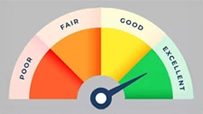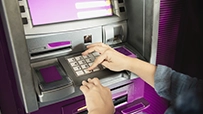Mobile Banking: The Smartest Way to Manage Your Money
Disclaimer: The information mentioned herein is generic in nature. Ujjivan Small Finance Bank may not offer all the services mentioned herein. Please contact the bank for details.
September 03, 2025

India's digital payments landscape is experiencing unprecedented growth. Statista projections indicate that the mobile payments market is set to reach ₹245 trillion by the financial year 2025, a substantial increase from ₹80 billion in 2015. This surge underscores a significant shift towards digital transactions, making financial services more accessible and efficient for millions. As smartphones become indispensable, mobile banking is transforming financial management—offering unparalleled speed, convenience, and security. Whether it's paying bills, transferring funds, or investing on the go, mobile banking ensures that banking services are always just a tap away.
What is Mobile Banking?
Mobile banking refers to financial transactions and services provided by banks through smartphone, both iOS and Android, applications or USSD services. It allows customers to access their bank accounts, transfer funds, pay bills, invest, and apply for loans—all without visiting a physical branch. With the rise of digital transformation, mobile banking is no longer just an option but a necessity.
Services Offered via Mobile Banking
Mobile banking apps provide a wide range of financial services, including:
- Fund Transfers : Transfer funds on the go and anytime with NEFT, IMPS, RTGS, and UPI transactions.
- Bill Payments : Electricity, water, broadband, DTH, and more.
- Investment & Savings : Open Fixed Deposits, Recurring Deposits, Savings Account and manage your money efficiently.
- Recharge : Recharge your prepaid mobile and/or DTH effectively.
- Create Debit Card PIN : Create your debit card PIN by entering the card expiry date and CVV code.
- Account Management : View account balance, mini statements, and transaction history. You can also view e-passbook, loan instalment details, request for cheque, Form 15G/H, TDS details, view and/or update nominee details, etc.
Benefits of Mobile Banking
1. 24/7 Accessibility
Mobile banking removes the constraints of banking hours, allowing you to manage finances anytime, anywhere.
2. Convenience & Time-Saving
Forget standing in long queues! Mobile banking enables quick transactions with just a few taps.
3. Instant Fund Transfers
With UPI and IMPS, transferring money to friends, family, or businesses happens in real-time, even on holidays.
4. Secure Transactions
Advanced encryption, two-factor authentication, and biometric security features ensure your transactions remain safe.
5. Paperless Banking
Say goodbye to physical documentation—mobile banking promotes an eco-friendly, paperless approach to transactions and account management.
6. Better Expense Tracking
Most banking apps offer real-time expenditure tracking, helping you manage budgets effectively.
Safe Mobile Banking Tips
While mobile banking is highly secure, users must take precautions:
- Use Strong Passwords – Set a unique and complex password for banking apps.
- Enable Two-Factor Authentication (2FA) – Adds an extra layer of security.
- Avoid Public Wi-Fi – Hackers can exploit unsecured networks.
- Keep Your App Updated – Regular updates fix vulnerabilities and enhance security.
- Verify Before Clicking Links – Avoid phishing scams by double-checking links and sender details.
- Log Out After Use – Especially when using a shared or public device.
Final Thoughts
Mobile banking is no longer a luxury—it’s a necessity in today’s fast-paced world. It offers unmatched convenience, security, and control over financial transactions. As digital banking continues to evolve, embracing mobile banking ensures you stay ahead in managing your finances efficiently.
Disclaimer:
The contents herein are only for informational purposes and generic in nature. The content does not amount to an offer, invitation or solicitation of any kind to buy or sell, and are not intended to create any legal rights or obligations. This information is subject to updation, completion, amendment and verification without notice. The contents herein are also subject to other product-specific terms and conditions, as well as any applicable third-party terms and conditions, for which Ujjivan Small Finance Bank assumes no responsibility or liability.
Nothing contained herein is intended to constitute financial, investment, legal, tax, or any other professional advice or opinion. Please obtain professional advice before making investment or any other decisions. Any investment decisions that may be made by the you shall be at your own sole discretion, independent analysis and evaluation of the risks involved. The use of any information set out in this document is entirely at the user’s own risk. Ujjivan Small Finance Bank Limited makes no representation or warranty, express or implied, as to the accuracy and completeness for any information herein. The Bank disclaims any and all liability for any loss or damage (direct, indirect, consequential, or otherwise) incurred by you due to use of or due to investment, product application decisions made by you on the basis of the contents herein. While the information is prepared in good faith from sources deemed reliable (including public sources), the Bank disclaims any liability with respect to accuracy of information or any error or omission or any loss or damage incurred by anyone in reliance on the contents herein, in any manner whatsoever.
To know more about Ujjivan Small Finance Bank Products Visit:"https://www.ujjivansfb.in"
All intellectual property rights, including copyrights, trademarks, and other proprietary rights, pertaining to the content and materials displayed herein, belong
to Ujjivan Small Finance Bank Limited or its licensors. Unauthorised use or misuse of any intellectual property, or other content displayed herein is strictly prohibited and the same is not intended for distribution to, or use by, any person in any jurisdiction where such distribution or use would (by reason of that person’s nationality, residence or otherwise) be contrary to law or registration or would subject Ujjivan Small Finance Bank Limited or its affiliates to any licensing or registration requirements.
FAQs
1. Is mobile banking safe?
Yes, mobile banking uses encryption, biometric authentication, and OTPs for secure transactions. However, users must follow safety practices like using strong passwords and avoiding suspicious links.
2. Can I use mobile banking without the internet?
Yes, USSD-based banking services allow basic transactions without an internet connection. However, for full-fledged app-based banking, an internet connection is required.
3. What should I do if I lose my phone?
Immediately log into internet banking from another device and block access. Also, notify your bank to secure your account.
4. How do I register for mobile banking?
Download your bank’s app, enter your registered mobile number, and follow the verification steps using OTP or ATM details.
5. Are there any charges for mobile banking?
Most banks offer mobile banking for free, but some services like SMS alerts or international transactions may have minimal charges.
6. Can I transfer large amounts via mobile banking?
Yes, but transaction limits vary by bank. UPI typically allows transfers up to ₹1 lakh per day, while NEFT and RTGS have higher limits.
7. Can I apply for a home loan through mobile banking?
Yes, many banks provide instant home loan applications through mobile banking apps, allowing users to check eligibility and upload documents online.
8. How can I check my account balance using mobile banking?
You can check your balance through the bank’s mobile app, USSD codes, or by sending an SMS to the bank’s designated number.
9. What happens if my mobile banking transaction fails?
Failed transactions are usually reversed within 24-48 hours. If not, contact your bank’s customer support with transaction details.
10. Can I block my debit card through mobile banking?
Yes, mobile banking apps offer the option to block/unblock cards instantly in case of loss or fraud.
Latest Blogs

APK Fraud: How One Wrong Download Could Empty Your Bank Account
May 13, 2025
Picture this. You’re sipping your evening tea when your phone rings.

Gold Loan LTV Ratio Explained (75% to 85%): What It Means for Borrowers
March 20, 2025
In June 2025, the Reserve Bank of India (RBI) introduced a significant relaxation for gold loan borrowers: the maximum Loan-to-Value (LTV) ratio for loans below ₹2.5 lakh was raised to 85%, up from the long-standing cap of 75%. Loans between ₹2.5 lakh and ₹5 lakh can now go up to 80%, while loans above ₹5 lakh continue under the 75% ceiling.

Good Debt vs Bad Debt: Learn the Difference
August 13, 2025
Every month, millions of Indians wait for the familiar debit alert, an EMI deducted from their account.

Got a Tax Refund? 5 Smart Ways to Put Your 2025 Refund to Work
August 13, 2025
For many taxpayers, there’s a unique sense of relief when a tax refund arrives.

Credit Score Not Improving? 5 Mistakes You Might Be Making
August 13, 2025
For most of us, a credit score feels like a silent judge sitting in the background of our financial lives.




